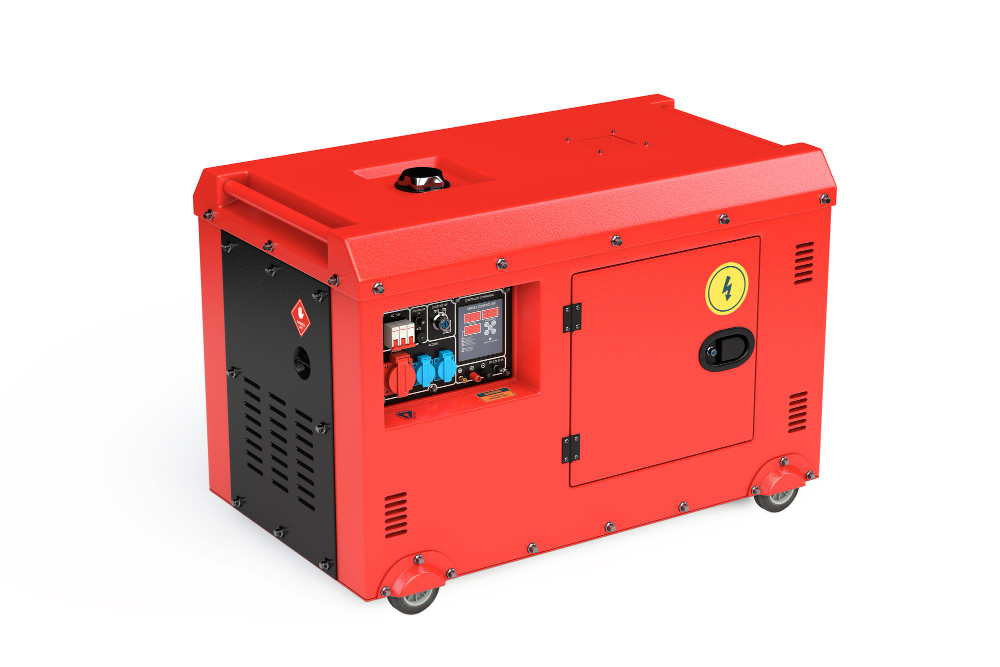Identifying the Right Generator Size For Your Home

Living in Apopka, FL, you know how important it is to be prepared for power outages. Whether it's hurricane season or an unexpected storm, having a reliable backup generator can save you a lot of trouble. But how do you know what size generator you need for your home? In this blog post, we'll walk you through the steps to identify the right generator size for your home. And if you're in need of professional help, Spectrum Electric's electricians in Apopka, FL are here to assist you.
Why Generator Size Matters
Choosing the right generator size is crucial for several reasons:
- Efficiency: A generator that is too small won't be able to power all your essential appliances, while an overly large generator can be inefficient and costly.
- Safety: Overloading a small generator can cause electrical hazards, including fires.
- Longevity: Using a generator that isn't the right size for your needs can lead to wear and tear, reducing its lifespan.
Factors to Consider When Choosing a Generator Size
Power Needs
The first step in identifying the right generator size is to determine your power needs. Here are some key factors to consider:
- Essential Appliances:
- Refrigerator/Freezer
- Heating and Cooling Systems
- Lights
- Water Heater
- Medical Equipment
- Wattage Requirements:
- Look at the wattage requirements of each essential appliance. This information is usually found on the appliance itself or in the user manual.
Running vs. Starting Wattage
It's important to understand the difference between running and starting wattage:
- Running Wattage: The continuous power needed to keep an appliance running.
- Starting Wattage: The extra power needed to start an appliance. This is typically higher than the running wattage.
Duration of Power Outages
Consider how long you typically experience power outages. If you frequently have extended outages, you might need a larger generator capable of running for longer periods without refueling.
How to Calculate Your Total Wattage
Once you've identified your essential appliances and their wattage requirements, you can calculate your total wattage needs. Here's a simple formula:
\[ \text{Total Wattage} = \text{Sum of Running Wattage} + \text{Highest Starting Wattage} \]
This calculation ensures that your generator can handle the initial surge of power required to start your appliances.
Types of Generators
Portable Generators
- Pros:
- Affordable
- Easy to move - Cons:
- Limited power output
- Requires manual setup
Standby Generators
- Pros:
- Automatically turns on during an outage
- Higher power output - Cons:
- More expensive
- Requires professional installation
Inverter Generators
- Pros:
- Quiet operation
- Fuel-efficient - Cons:
- Expensive
- Limited power output
Generator Sizing Guide
Here’s a general guide to help you decide:
Small Generators (3,000 - 4,000 watts)
- Suitable for:
- Lights
- Small refrigerator
- Fans
- Not suitable for large appliances like HVAC systems.
Medium Generators (5,000 - 8,000 watts)
- Suitable for:
- Refrigerator/Freezer
- Multiple lights
- Small air conditioner or heater
- Can handle more appliances but not all at once.
Large Generators (10,000+ watts)
- Suitable for:
- Entire home
- HVAC systems
- Multiple large appliances
- Best for homes with high power needs.
Professional Assessment
While this guide provides a good starting point, consulting with professional electricians in Apopka, FL can give you a precise understanding of your generator needs. Spectrum Electric offers comprehensive assessments to ensure that you choose the right generator size for your home.
Installation and Maintenance
Professional Installation
Installing a generator is not a DIY project. It involves complex electrical work and must comply with local codes. Professional electricians, like those at Spectrum Electric in Apopka, FL, can ensure that your generator is installed correctly and safely.
Maintenance Tips
- Regular Testing: Run your generator at least once a month.
- Oil Changes: Follow the manufacturer’s guidelines for oil changes.
- Fuel Storage: Keep fuel fresh and properly stored.
- Professional Inspection: Have a professional inspect your generator annually.
Conclusion
Choosing the right generator size for your home in Apopka, FL involves understanding your power needs, calculating total wattage, and selecting the appropriate type of generator. While this guide provides valuable insights, consulting with professional electricians like those at Spectrum Electric can ensure that you make the best choice for your home. Don't wait for the next power outage to realize you need a generator—contact Spectrum Electric today to schedule an appointment.
Call to Action
Ready to safeguard your home against power outages? Schedule a consultation with Spectrum Electric’s expert electricians in Apopka, FL today and get the perfect generator for your needs.
